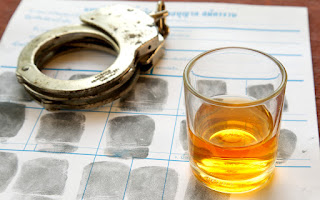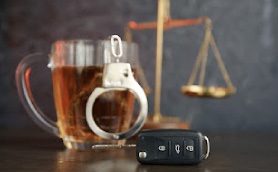Dealing with charges for driving while intoxicated (DWI) can be a frustrating and traumatic experience. Most cases lead to a conviction with nasty repercussions, including expensive fines, driver’s license suspension, jail time, and even a criminal record.
The worst part is that all these consequences can change your life forever, lowering your prospects of qualifying for things like affordable insurance premiums.
However, getting one doesn’t mean you can’t do something about it to lessen its impact. If you or someone you know is wondering if reducing said charge is possible, the answer is yes.
With professional support and smart decision-making, you can mitigate the repercussions of a DWI sentencing.
Here’s what you need to know.
- Lack Of Probable Cause For A Traffic Stop
For a traffic stop, the police officer must have probable cause to believe you’ve broken the law.
Probable cause refers to the reasonable suspicion of wrongdoing. That means the police officer should have a legitimate reason to think you’ve violated a traffic law to require you to pull over. Some common observations include speeding, straddling the lanes, and failure to stop at a stop sign.
Suppose the police had no probable cause to execute a traffic stop. That means the evidence subsequently obtained against you will be rendered inadmissible in court.
However, using a lack of probable cause for a traffic stop as a defense isn’t easy. You must procure the necessary evidence to show that the police officer had no justifiable reason to pull you over.
In that case, you need to work with an experienced DWI lawyer who can develop a strong argument for your case. They can help you collect the evidence to prove that the police officer made an improper stop and arrest. This way, you can improve your chances of getting your DWI charge reduced.

- Suppression Of DWI-Related Test Findings As Evidence
If you’ve been charged with a DWI offense, you should know that failed test results don’t result in an automatic conviction. With the help of an excellent criminal defense lawyer, you can challenge the results of DWI-related tests, including field sobriety and breathalyzer tests.
For instance, you can look into how these tests are conducted to check if there are errors that warrant their suppression as evidence.
Some common errors you can raise as defenses include:
- Improper administration: The results are likely to be inaccurate when the field sobriety and breathalyzer tests are improperly administered. As such, you can work with a legal professional to challenge the test results and defend yourself from a potential conviction.
- Defective equipment: If the breathalyzer equipment malfunctions, you can raise the argument that the samples subsequently obtained may be erroneous and should be inadmissible in evidence in court.
- Failure to calibrate device: Aside from being defective, you can challenge your DWI charge by claiming that the breathalyzer wasn’t calibrated regularly. This device is highly sensitive, so any failure to maintain it can lead to inaccurate results. When this happens, you may question the reliability of the evidence, raising the possibility of suppression.
- Mishandled samples: Blood or urine samples are also used to determine the alcohol content inside your body during the DWI arrest. However, these samples are prone to possible contamination when they’re mishandled. If you can prove any errors in the storage protocols, you can have the tests invalidated.
- Uncertified technicians: The people administering the breathalyzer test and examining the blood or urine samples should be certified or licensed. Otherwise, you can claim that the results should be inadmissible in evidence due to the technicians being unqualified.
You and your lawyer may use these arguments to weaken the prosecution. When these are properly raised in a court proceeding, you’ll have a higher chance of getting your DWI charge reduced.
- Failure To Give Miranda Warnings
Miranda warnings play a crucial role in dealing with a DWI charge. It’s essential to know that the police officer must state it clearly before questioning someone under custodial investigation.
Thus, if you weren’t given these warnings and eventually made an incriminating statement in response to police questioning, then the court can render your statement inadmissible in evidence. Consequently, you can lower the possibility of a DWI conviction.
Know Your Options
If you’re facing a DWI charge, consult a criminal defense lawyer to protect your rights and interests as soon as possible. Even if you can choose to defend yourself, seeking legal help can make a massive difference in the success of your case. Given the serious legal consequences of a DWI charge and conviction, you need every assistance you can get to reduce your charge and return to your everyday life.
Remember the above information to help your lawyer build your case against a DWI charge.




